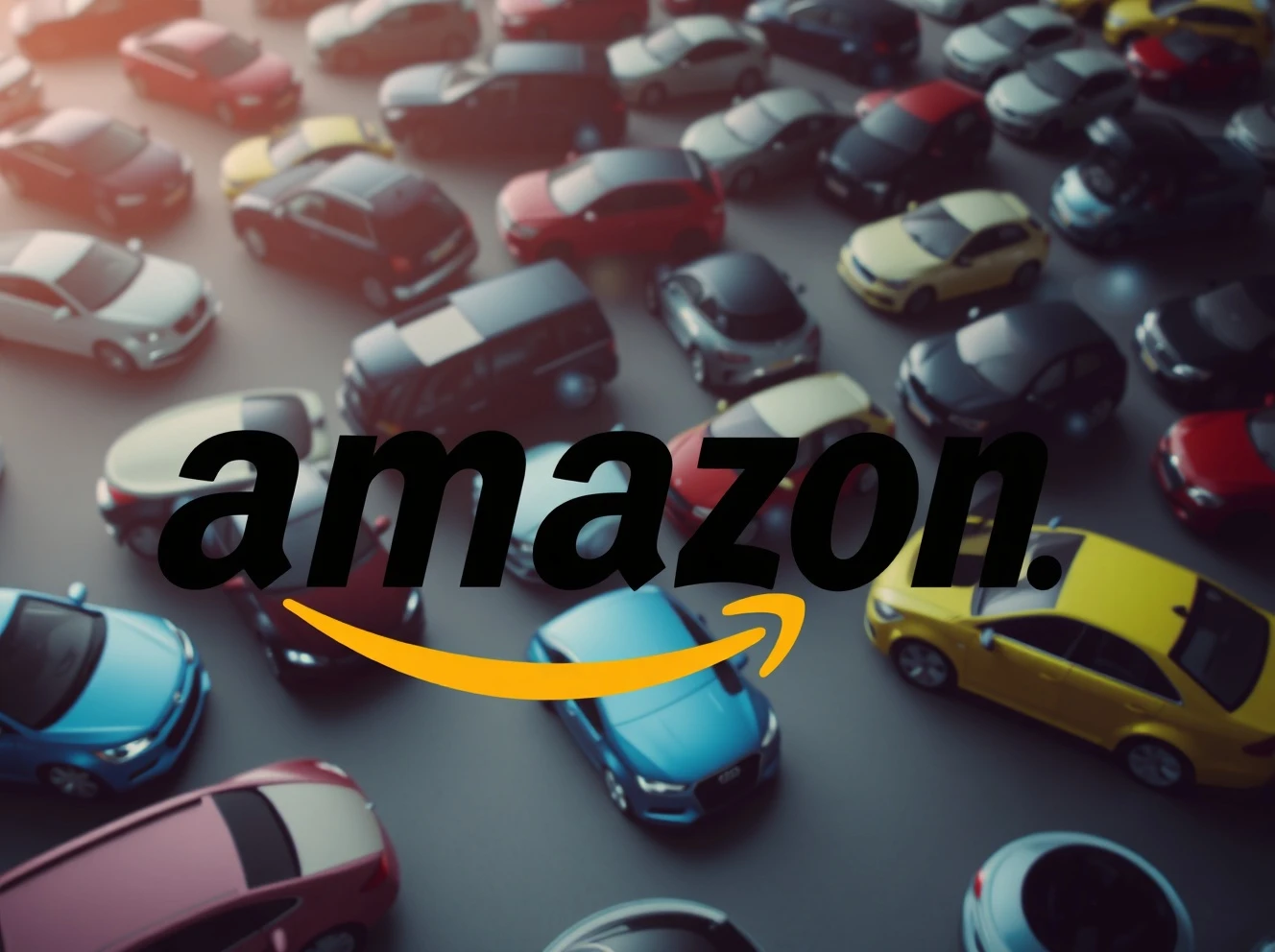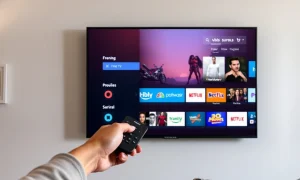A seismic shift is underway in the automotive industry. Amazon, the e-commerce giant, has forged a significant partnership with Hertz, a leading car rental company. This alliance is poised to revolutionize the used car market, a sector valued at over a trillion dollars annually. Business leaders and entrepreneurs are closely watching this development. It represents a bold new chapter for online vehicle sales. Furthermore, it signals a deeper integration of digital platforms into traditional industries. This collaboration promises new efficiencies and expanded reach for both companies. It also offers unprecedented convenience for consumers.
The Strategic Alliance Reshaping the Used Car Market
Hertz now sells its retired rental vehicles directly through Amazon. This move represents a major strategic pivot for both entities. For Hertz, it provides a highly efficient channel to offload its fleet. Typically, rental companies use auctions or wholesale channels. However, Amazon offers a direct-to-consumer approach. This can potentially yield better returns. Moreover, it streamlines the sales process considerably. The deal started with specific vehicles, primarily electric vehicles (EVs), available in select cities. This initial focus allows for careful scaling and market testing.
Amazon, in turn, significantly expands its automotive footprint. While Amazon has dabbled in vehicle sales before, this partnership marks a deeper commitment. It leverages Amazon’s massive customer base and robust logistics network. Consequently, consumers can now browse and purchase quality used cars with the familiarity of Amazon’s platform. This includes transparent pricing and convenient delivery options. The partnership targets a crucial segment of the used car market, offering a trusted source for pre-owned vehicles.
Hertz’s Fleet Management Evolution
Hertz operates one of the largest vehicle fleets globally. Managing this inventory efficiently is paramount. Historically, selling off old cars was a complex operation. It involved multiple intermediaries and fluctuating market prices. This new Amazon deal simplifies the entire process. Hertz can now list vehicles directly on Amazon’s platform. This reduces overhead costs. Furthermore, it shortens the sales cycle. The focus on EVs initially is also strategic. Hertz has made significant investments in electric vehicles. This partnership helps them manage their EV depreciation and resale value effectively. This innovative approach sets a new standard for fleet disposal in the used car market.
Understanding the Trillion-Dollar Used Car Market
The used car market is immense. It consistently outpaces new car sales in volume. In fact, it is a multi-trillion-dollar industry globally. Several factors drive its robust growth. Affordability remains a primary concern for many buyers. Used cars offer a more budget-friendly alternative. Furthermore, recent supply chain disruptions have limited new car availability. This scarcity has boosted demand for pre-owned vehicles. Consumers are also increasingly comfortable with online purchases. This includes high-value items like cars. Digital platforms have made the buying process transparent and accessible.
Key Drivers of Market Growth:
- Affordability: Used cars provide a lower entry point for vehicle ownership.
- Supply Chain Issues: New car production delays push buyers to the used market.
- Online Convenience: Digital platforms simplify browsing, purchasing, and delivery.
- Vehicle Longevity: Modern cars last longer, increasing the quality of used inventory.
This market is not just about cost savings. It also reflects changing consumer preferences. Buyers seek convenience and transparency. They want detailed vehicle histories and clear pricing. Therefore, platforms that can deliver these attributes thrive. Amazon’s entry, coupled with Hertz’s inventory, directly addresses these demands. This collaboration aims to capture a significant share of this expanding sector. It capitalizes on existing market trends and consumer behaviors.
Amazon’s Bold Entry into Automotive Sales
Amazon is no stranger to disrupting industries. Its foray into automotive sales is a natural progression. The company previously invested in Rivian, an electric vehicle manufacturer. This showed an early interest in the auto sector. However, selling used cars directly is a different proposition. It leverages Amazon’s core strengths: logistics, customer service, and a vast digital marketplace. The partnership with Hertz provides a reliable supply of high-quality vehicles. These are cars with known maintenance histories. This addresses a major concern for used car buyers: trust.
The traditional car buying experience often involves dealerships. It can be time-consuming and sometimes stressful. Amazon offers an alternative. Buyers can browse, select, and purchase a car from their home. This process mirrors other Amazon purchases. It prioritizes ease and efficiency. Furthermore, Amazon’s reputation for customer satisfaction is a powerful asset. This trust factor can significantly reduce buyer apprehension. Consequently, Amazon is positioning itself as a formidable player in the used car market. It is redefining how consumers acquire vehicles.
What This Means for Consumers in the Used Car Market
For consumers, this partnership brings numerous benefits. Firstly, it offers unparalleled convenience. You can shop for a car 24/7 from any device. There is no need to visit multiple dealerships. Secondly, it expands choice. Hertz has a diverse fleet, providing a wide array of makes and models. This variety caters to different budgets and preferences. Thirdly, the process emphasizes transparency. Amazon’s platform typically provides detailed product information. This includes vehicle specifications and pricing. This clarity builds buyer confidence.
Moreover, the trust factor is significant. Hertz vehicles are professionally maintained. They often come with detailed service records. This assures buyers of the car’s condition. Amazon’s delivery network also simplifies acquisition. Purchased vehicles can be delivered directly to the buyer’s home. This eliminates the hassle of pickup. The entire experience aims to be seamless. It transforms a complex transaction into a straightforward one. Therefore, consumers gain a more efficient and trustworthy option within the used car market.
Enhanced Buying Experience:
- Convenience: Shop from anywhere, anytime.
- Transparency: Clear pricing and vehicle details.
- Trust: Professionally maintained Hertz vehicles.
- Delivery: Cars delivered directly to your doorstep.
The integration of financing options is also crucial. Amazon may offer various payment solutions. This makes car ownership more accessible. The goal is to create a comprehensive digital car buying ecosystem. This ecosystem addresses every step of the purchase journey. It aims to set a new standard for the industry. This level of service could fundamentally change consumer expectations for the used car market.
Impact on Traditional Dealerships and Competitors
This Amazon-Hertz collaboration poses a direct challenge to traditional dealerships. These businesses have long dominated the used car market. However, they now face formidable competition. Amazon’s scale and digital prowess are unmatched. Dealerships must adapt quickly. They need to enhance their online presence. Furthermore, they must improve their customer experience. Innovation is no longer optional; it is essential for survival.
Online used car retailers like Carvana and Vroom also face new pressure. These companies pioneered online car sales. They built their business models around digital convenience. However, Amazon brings unparalleled brand recognition and logistical capabilities. This could intensify competition significantly. These established online players may need to innovate further. They might seek new partnerships or expand their service offerings. The landscape of the used car market is undeniably shifting. It demands agility and strategic foresight from all participants.
The Future Landscape of the Used Car Market
The Amazon-Hertz deal is a harbinger of future trends. The used car market will likely see further digital transformation. Technology will play an even greater role. Artificial intelligence (AI) can personalize recommendations. Data analytics will optimize pricing. Blockchain technology might even secure vehicle histories. These innovations will enhance transparency and trust. They will also streamline operations for sellers.
Sustainability is another growing factor. The demand for used electric vehicles is increasing. This trend aligns with Hertz’s initial focus on EV sales through Amazon. As more EVs enter the market, their resale value and accessibility will become critical. The future used car market will be more interconnected. It will also be more environmentally conscious. Companies that embrace these changes will lead the way. Amazon and Hertz are clearly positioning themselves at the forefront of this evolution. They are shaping the next generation of automotive retail.
In conclusion, the partnership between Amazon and Hertz marks a pivotal moment. It signifies a major disruption in the used car market. This collaboration offers new opportunities for consumers. It also presents significant challenges for traditional players. The industry is moving towards greater digitalization and convenience. This alliance demonstrates a powerful strategy. It leverages the strengths of two industry leaders. Consequently, it sets a new benchmark for online vehicle sales. The future of car buying is here, and it is increasingly digital.
Frequently Asked Questions (FAQs)
Q1: What is the main objective of the Amazon-Hertz partnership?
A1: The primary objective is for Hertz to sell its retired rental vehicles directly to consumers through Amazon’s e-commerce platform. This streamlines Hertz’s fleet disposal and expands Amazon’s presence in the used car market.
Q2: How does this deal benefit consumers?
A2: Consumers benefit from increased convenience, a wider selection of vehicles, transparent pricing, and the trust associated with professionally maintained Hertz cars. They can also enjoy direct delivery to their homes.
Q3: Which types of vehicles are initially available through this partnership?
A3: The initial phase of the partnership focuses on selling electric vehicles (EVs) from Hertz’s fleet. These vehicles are available in select cities, with plans for broader expansion.
Q4: How might this partnership impact traditional car dealerships?
A4: This collaboration introduces significant competition for traditional dealerships. They will likely need to enhance their online sales capabilities and customer experience to remain competitive in the evolving used car market.
Q5: What is the estimated value of the used car market that Amazon and Hertz are tapping into?
A5: The used car market is a substantial industry, valued at over a trillion dollars annually. This partnership aims to capture a significant share of this expansive and growing sector.
Q6: Does Amazon handle the delivery of the purchased vehicles?
A6: Yes, Amazon’s robust logistics network facilitates the delivery of purchased vehicles directly to the buyer’s home, enhancing the overall convenience of the buying process.







